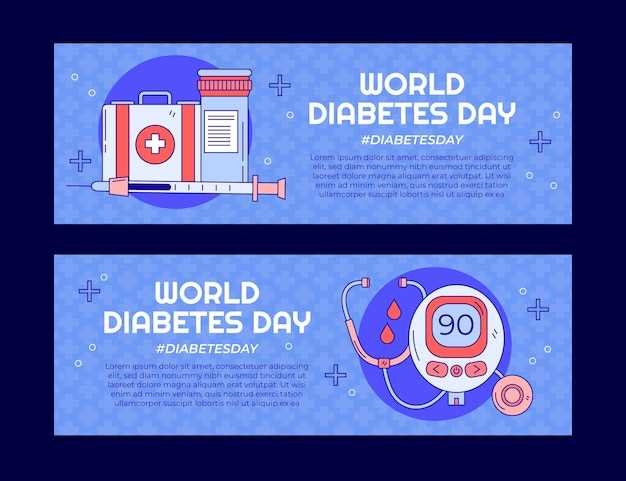
Living a fulfilling life while managing chronic conditions such as diabetes, hypertension, and other diseases requires a unique approach that goes beyond mere survival. It demands a proactive mindset, a commitment to self-care, and a deep understanding of the body’s intricate mechanisms. This guide aims to empower individuals with chronic conditions to navigate the complexities of their health journey, providing valuable insights and practical strategies for achieving a balanced and healthy lifestyle.
Living with chronic conditions can be overwhelming, but it doesn’t have to define one’s existence. By embracing the power of knowledge and self-awareness, individuals can take control of their health and make informed decisions that positively impact their overall well-being. This guide will delve into the various aspects of living well with chronic conditions, exploring the importance of nutrition, exercise, stress management, and medication adherence.
One of the key pillars of managing chronic conditions is understanding the intricate relationship between physical and mental health. Chronic conditions often come hand in hand with emotional challenges, such as anxiety, depression, and feelings of isolation. This guide will shed light on the importance of emotional well-being and provide practical tips for maintaining a positive mindset, fostering healthy relationships, and seeking support from healthcare professionals and support groups.
Furthermore, this guide will address the common misconceptions surrounding chronic conditions and debunk myths that often lead to unnecessary fear and stigma. It will emphasize the importance of open communication with healthcare providers, as well as the significance of regular check-ups, screenings, and self-monitoring. By demystifying the complexities of chronic conditions, individuals can approach their health journey with confidence and a sense of empowerment.
Living well with chronic conditions is not an easy feat, but it is certainly achievable. With the right knowledge, support, and determination, individuals can lead fulfilling lives, pursuing their passions and dreams while effectively managing their health. This guide aims to be a trusted companion, offering guidance, inspiration, and practical tools to navigate the challenges of chronic conditions and embrace a balanced and healthy lifestyle.
Living a Fulfilling Life with Ongoing Health Challenges: A Comprehensive Handbook

Embracing a vibrant and meaningful existence while managing long-term health conditions can be a complex journey. This comprehensive guide offers valuable insights and practical strategies to empower individuals facing chronic conditions to live life to the fullest. Discover effective approaches to enhance overall well-being, cultivate resilience, and foster a positive mindset.
1. Embracing Self-Care: Prioritize self-care as an essential component of managing chronic conditions. Explore various self-care practices, such as mindfulness, meditation, and relaxation techniques, to promote physical, mental, and emotional well-being. Learn to listen to your body’s needs and establish healthy habits that support your overall health.
2. Building a Support Network: Recognize the importance of a strong support system in navigating the challenges of chronic conditions. Discover strategies to cultivate meaningful connections with family, friends, and healthcare professionals. Explore support groups, online communities, and resources that provide a safe space for sharing experiences, gaining knowledge, and finding encouragement.
3. Effective Communication: Develop effective communication skills to advocate for your needs and collaborate with healthcare providers. Learn how to ask questions, express concerns, and actively participate in your treatment plan. Enhance your ability to navigate medical appointments, understand medical jargon, and make informed decisions about your health.
4. Managing Medications and Treatment: Gain insights into effectively managing medications, treatments, and therapies related to chronic conditions. Learn about medication adherence, potential side effects, and the importance of regular check-ups. Discover strategies to integrate treatment plans into your daily routine and maintain a proactive approach to your health.
5. Nutrition and Physical Activity: Explore the role of nutrition and physical activity in managing chronic conditions. Discover practical tips for adopting a balanced and nutritious diet, incorporating regular exercise, and maintaining a healthy weight. Learn how to make informed food choices, manage portion sizes, and develop an exercise routine that suits your abilities and preferences.
6. Managing Stress and Emotional Well-being: Understand the impact of stress on chronic conditions and explore effective stress management techniques. Discover strategies to cultivate emotional well-being, such as practicing gratitude, engaging in hobbies, and seeking professional support when needed. Learn how to navigate the emotional ups and downs of living with chronic conditions and develop resilience in the face of challenges.
7. Planning for the Future: Explore strategies for planning and preparing for the future while living with chronic conditions. Learn about advance care planning, financial considerations, and legal aspects that may impact your health journey. Gain insights into creating a support network for emergencies and developing contingency plans to ensure your well-being in various scenarios.
By embracing the principles outlined in this comprehensive guide, individuals living with chronic conditions can navigate their health journey with confidence, resilience, and a renewed sense of purpose. Remember, you are not defined by your conditions, but rather by your ability to adapt, thrive, and live a fulfilling life despite the challenges you may face.
Understanding the Impact of Diabetes, Hypertension, and Other Diseases
Exploring the profound consequences of diabetes, hypertension, and various other diseases is crucial in comprehending the far-reaching effects they have on individuals’ lives. This section aims to delve into the intricate web of implications these chronic conditions impose, shedding light on the physical, emotional, and social aspects that intertwine with the daily existence of those affected.
Physical Implications
The physical impact of diabetes, hypertension, and other diseases can be extensive, affecting various bodily systems and functions. These conditions often lead to disruptions in blood sugar levels, blood pressure, and overall organ health. Individuals may experience symptoms such as fatigue, frequent urination, blurred vision, and difficulty in wound healing. The management of these physical manifestations becomes a crucial aspect of living with chronic diseases.
Emotional and Psychological Effects
Living with diabetes, hypertension, and other diseases can take a toll on an individual’s emotional and psychological well-being. The constant need for monitoring, medication, and lifestyle adjustments can lead to feelings of frustration, anxiety, and even depression. Coping with the emotional rollercoaster that accompanies chronic conditions requires resilience, support, and a comprehensive understanding of the psychological impact these diseases can have.
Moreover, the fear of potential complications and the uncertainty of the future can further exacerbate the emotional burden. It is essential to address the psychological aspect of living with chronic diseases to ensure holistic care and support for individuals and their loved ones.
Social Implications
Chronic diseases like diabetes and hypertension can significantly impact an individual’s social life and relationships. The need for dietary restrictions, medication schedules, and regular medical appointments can disrupt daily routines and social activities. This can lead to feelings of isolation, as individuals may find it challenging to participate fully in social events or engage in activities they once enjoyed.
Furthermore, the stigma associated with certain chronic conditions can also affect an individual’s social interactions. Misconceptions and lack of awareness about these diseases can lead to judgment and discrimination, further isolating those living with diabetes, hypertension, and other chronic conditions.
- Understanding the physical, emotional, and social implications of chronic diseases is crucial for healthcare providers, caregivers, and individuals themselves.
- By recognizing the multifaceted impact of these conditions, appropriate support, education, and resources can be provided to enhance overall well-being and quality of life.
- Empathy, compassion, and a comprehensive approach are vital in navigating the challenges posed by diabetes, hypertension, and other chronic diseases.
Managing Chronic Conditions: A Holistic Approach
Embracing a comprehensive method to handle long-term health challenges is essential for individuals living with diabetes, hypertension, and other chronic diseases. By adopting a holistic approach, individuals can cultivate a balanced and integrated lifestyle that encompasses physical, emotional, and mental well-being.
Addressing the physical aspect: Taking care of one’s body is crucial when managing chronic conditions. This involves following a personalized treatment plan, which may include medication, regular exercise, and a balanced diet. By staying committed to these practices, individuals can optimize their physical health and minimize the impact of their conditions.
Nurturing emotional well-being: Chronic conditions can often take a toll on an individual’s emotional state. It is important to acknowledge and address these emotions, seeking support from loved ones or professional counselors when needed. Engaging in activities that bring joy and practicing self-care can also contribute to emotional well-being and overall quality of life.
Cultivating mental resilience: Chronic conditions may present challenges that require mental strength and resilience. Developing coping strategies, such as mindfulness techniques or engaging in hobbies, can help individuals navigate the ups and downs of managing their conditions. It is crucial to prioritize mental health and seek professional help if necessary.
Building a support network: Surrounding oneself with a supportive community can significantly impact the management of chronic conditions. Connecting with others who share similar experiences can provide a sense of understanding and encouragement. Support groups, online communities, or local organizations can offer valuable resources and a sense of belonging.
Empowering self-advocacy: Taking an active role in managing chronic conditions is empowering. Individuals should educate themselves about their conditions, ask questions, and communicate openly with healthcare professionals. By becoming informed advocates for their own health, individuals can make informed decisions and actively participate in their treatment plans.
Emphasizing the importance of self-care: Prioritizing self-care is vital when managing chronic conditions. This involves setting boundaries, practicing stress management techniques, and engaging in activities that promote relaxation and rejuvenation. By nurturing oneself, individuals can better cope with the challenges that come with living with chronic diseases.
Striving for a balanced lifestyle: Achieving balance in all aspects of life is key to managing chronic conditions. This includes finding a harmonious equilibrium between work, relationships, hobbies, and self-care. By maintaining a balanced lifestyle, individuals can enhance their overall well-being and effectively navigate the complexities of living with chronic diseases.
By adopting a holistic approach to managing chronic conditions, individuals can lead fulfilling lives while effectively managing their health challenges. It is important to remember that each person’s journey is unique, and finding what works best for oneself is essential in achieving optimal well-being.
Creating a Personalized Care Plan for Long-term Health
Developing an individualized approach to managing your health conditions is crucial for maintaining long-term well-being. In this section, we will explore the importance of tailoring a care plan that addresses your specific needs and goals, allowing you to navigate the challenges of living with diabetes, hypertension, and other chronic diseases.
Understanding Your Unique Health Profile
Each person’s experience with chronic conditions is unique, influenced by various factors such as genetics, lifestyle choices, and environmental influences. By gaining a comprehensive understanding of your health profile, including your medical history, current symptoms, and risk factors, you can work with healthcare professionals to develop a personalized care plan.
Setting Realistic Goals
Setting achievable goals is an essential component of any successful care plan. By collaborating with your healthcare team, you can identify specific targets that align with your long-term health aspirations. These goals may include managing blood sugar levels, reducing blood pressure, improving overall fitness, or adopting healthier dietary habits.
Implementing Lifestyle Modifications
Adopting healthy lifestyle modifications is crucial for effectively managing chronic conditions. This may involve making dietary changes, engaging in regular physical activity, managing stress levels, and getting adequate sleep. By incorporating these modifications into your daily routine, you can enhance your overall well-being and minimize the impact of your conditions.
Monitoring and Tracking Progress
Regular monitoring and tracking of your health parameters are vital for evaluating the effectiveness of your care plan. This may involve self-monitoring of blood sugar levels, blood pressure measurements, or keeping a journal to record symptoms and medication adherence. By actively monitoring your progress, you can make necessary adjustments to your care plan and ensure that you are on track towards achieving your health goals.
Collaborating with Healthcare Professionals
Building a strong partnership with your healthcare team is essential for managing chronic conditions effectively. Regular communication with your doctors, nurses, and other specialists can provide valuable guidance and support. They can help you navigate treatment options, provide education on self-care techniques, and offer resources to enhance your understanding of your conditions.
Empowering Yourself through Education
Education plays a vital role in empowering individuals to take control of their health. By educating yourself about your conditions, treatment options, and self-care strategies, you can actively participate in decision-making processes and advocate for your needs. Utilize reputable sources, attend educational workshops, and engage in support groups to expand your knowledge and gain confidence in managing your chronic conditions.
Adapting to Changing Needs
As your health conditions may evolve over time, it is crucial to remain flexible and adaptable in your care plan. Regularly reassess your goals, monitor your progress, and communicate any changes or concerns with your healthcare team. By staying proactive and responsive to your evolving needs, you can continue to live a fulfilling life while effectively managing your chronic conditions.
In conclusion, creating a personalized care plan for long-term health involves understanding your unique health profile, setting realistic goals, implementing lifestyle modifications, monitoring and tracking progress, collaborating with healthcare professionals, empowering yourself through education, and adapting to changing needs. By taking a proactive approach to managing your chronic conditions, you can enhance your overall well-being and live a fulfilling life.
Building a Support Network: Engaging Family, Friends, and Healthcare Professionals
Creating a strong support network is essential for individuals managing chronic conditions such as diabetes, hypertension, and other diseases. This section explores the importance of engaging family, friends, and healthcare professionals in the journey towards living a healthy and fulfilling life.
1. Involving Family and Friends
When facing the challenges of chronic conditions, having the support of loved ones can make a significant difference. Engaging family and friends in your healthcare journey can provide emotional support, encouragement, and practical assistance. Communicating openly about your condition, educating them about the specific challenges you face, and involving them in decision-making processes can foster understanding and empathy.
Additionally, family and friends can play a crucial role in promoting healthy lifestyle choices. Encouraging physical activity, assisting with meal planning and preparation, and providing a positive environment can contribute to better disease management and overall well-being.
2. Collaborating with Healthcare Professionals
Healthcare professionals are an invaluable resource for individuals living with chronic conditions. Building a strong partnership with your healthcare team can enhance your understanding of your condition, improve treatment adherence, and optimize your overall health outcomes.
Regularly attending medical appointments, actively participating in discussions, and asking questions can help you gain a deeper understanding of your condition and treatment options. Collaborating with healthcare professionals in setting realistic goals, developing personalized care plans, and monitoring progress can empower you to take an active role in managing your health.
Furthermore, healthcare professionals can provide guidance on medication management, lifestyle modifications, and coping strategies. They can also connect you with additional resources and support groups that can further enhance your knowledge and provide a sense of community.
By building a support network that includes family, friends, and healthcare professionals, individuals with chronic conditions can navigate the challenges more effectively, improve their overall well-being, and lead fulfilling lives.
Adopting Healthy Lifestyle Habits: Nutrition, Exercise, and Stress Management
Creating a balanced and fulfilling life while managing chronic conditions such as diabetes, hypertension, and other diseases requires adopting healthy lifestyle habits. This section explores the importance of nutrition, exercise, and stress management in maintaining overall well-being and effectively managing these conditions.
The Role of Nutrition

Proper nutrition plays a vital role in managing chronic conditions. It involves making conscious choices about the types and quantities of food consumed, ensuring a well-rounded diet that meets the body’s nutritional needs. A balanced diet rich in fruits, vegetables, whole grains, lean proteins, and healthy fats can help control blood sugar levels, maintain a healthy weight, and reduce the risk of complications associated with these conditions.
The Power of Exercise
Regular physical activity is essential for individuals living with chronic conditions. Engaging in exercise not only helps manage weight but also improves cardiovascular health, lowers blood pressure, and enhances insulin sensitivity. It is important to find activities that are enjoyable and suitable for individual fitness levels, ensuring consistency and adherence to an exercise routine. Incorporating a combination of aerobic exercises, strength training, and flexibility exercises can provide maximum benefits.
| Benefits of Nutrition and Exercise | Benefits of Stress Management |
|---|---|
| – Improved blood sugar control | – Reduced risk of complications |
| – Weight management | – Lowered blood pressure |
| – Enhanced cardiovascular health | – Improved mental well-being |
| – Increased insulin sensitivity | – Better sleep quality |
Stress Management Techniques
Living with chronic conditions can be stressful, and effective stress management is crucial for overall well-being. Adopting stress management techniques such as mindfulness, meditation, deep breathing exercises, and engaging in activities that bring joy and relaxation can help reduce stress levels. It is important to prioritize self-care, set realistic goals, and seek support from healthcare professionals, family, and friends to effectively manage stress and improve quality of life.
